Dispatches From Cairo: Happy Feast to All
It has been an intense Ramadan in this August of the Arab Spring. But now it is time to celebrate one of the most important Islamic traditions: The Festival of Breaking the Fast, or Eid al-Fitr.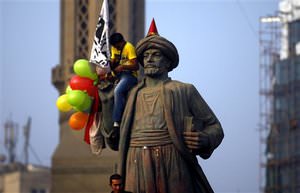
We asked Lauren Unger-Geoffroy, an Arabic-speaking American who lives in Cairo, to share her perspective of life in Egypt after the revolution. Here she writes about the end of Ramadan.
Happy feast to all.
The normal, reassuring, nightly warning gunshots that we hear in my neighborhood coming from the nearby El Tora prison since the revolution have been mixed with much louder reverberating booms today [Monday] and tonight. Perhaps the guards at the prison are firing the big guns to celebrate. Perhaps it was fireworks. [Editor’s note: Guards routinely fire shots into the air to deter misbehavior by the prisoners, and this gunfire at night reassures neighbors by indicating that the prison is still under control.]
Ramadan, the month of fasting, ended today, thus tonight began the Eid al-Fitr, the three-day Festival of Breaking the Fast. Eid al-Fitr is one of the two most important Islamic celebrations. People dress in their finest clothes, adorn their homes with lights and decorations, give treats to children, send text messages and tweets and visit with friends and family.
It has been an intense Ramadan in this August of the Arab Spring. The hot, long days voluntarily spent without food or water were a true test of self-control while the people watched the waves of change. The revolutions in Libya and Syria reached unprecedented peaks of violence. In Gaza, Israel’s arrogant disregard caused a tragic, pointless martyring of Egyptian police and officers that rekindled and inflamed the indignation and frustrated hostility of Egyptians toward Israel. Anger flared over the old regime’s self-enriching agreements and about Palestine and other antipathies, rational and irrational.
Of course, the good people also worried and prayed for the safety of those in the earthquake and hurricane on the East Coast of the United States, as they did for all people in need and in suffering. OK, true, there was a lot of speculative twittering and Facebook chatter about divine retribution, etc., but most Egyptians condemned those voices as uncharitable.
Generosity and gratitude color these festivities, and the charity and good deeds that are always important in Islam have special significance at the end of Ramadan, when Muslims are obligated to share their blessings by feeding the poor and making contributions to the needy through the mosques, and charitable feelings are de rigueur. It’s the holiday spirit. Mashalla.
As in many Islamic holidays, the exact day is decided based on the appearance of the moon and on other particular observable conditions, so everyone talks to each other about “when,” asking and waiting. Until today, we didn’t know whether the fast would end today or Tuesday, but, el humdulalla, it was today, and we are celebrating. We are celebrating the success (we hope) of our shared monthlong self-discipline and purification of our bodies and souls. Everyone is out now, rushing to buy gifts and toys and candy and new things to wear. The stores, more so than ever, are open until the wee hours.
Along with millions of others we spent the last 10 days of Ramadan in meditative high gear, hoping to be aware and worthy on the secret bonus day of Laylat al-Qadr, which means either “Night of Destiny” or “Night of Power” or “Night of Value” or “Night of Decree” or “Night of Measures.” It is the anniversary of the night the first verses of the Quran were revealed to Muhammad.
Laylat al-Qadr is a mystical and spiritual event whose signs may or may not be seen with the eye. It most likely comes on one of the last 10 nights of Ramadan, and one of the odd-numbered nights. The uncertainty is intended to encourage spiritual best behavior for 10 days and nights; it is said that whoever happens to spend that unknown night in prayer will have rewards a thousandfold, forgiveness of his or her previous and future sins, and favors granted.
With the Muslim world going through the throes of transformative shift and upheaval full of tragedy and victory and outrage and insecurity and solidarity and hope and pride, major event upon major event occurred throughout Ramadan, the month of Peace and Purity. Through it all, many of us were determined to catch our lucky reward on Laylat al-Qadr, the Night of Destiny, this year! (It’s a logical extension of Pascal’s Wager for you philosophy buffs, abstracting the implied Christian specificity.)
For the first time some computer programs claimed to be able to determine the exact day, so the online world was generally in consensus regarding the day. Thus many computer users accepted that Laylat al-Qadr was Aug. 27, but many Egyptians rejected the validity of that electronic method. Finally, the true day will be determined by subtle interpretation. Insha’Alla, many will be lucky. We’ll see. The link above shows scenes of Alexandria’s 1.5-million-person 27th of Ramadan prayer last year.
It must be clear by now that, among other things, the Arab world has grasped the real power of community, and the power of online networks and text and media as uniting factors for the broad strokes. Diverse perspectives blended in a common faith, one of the original goals of Islam, and one of the strongest points of Muslim solidarity — unity not generated by fear.Contrary to the contemporary lack of learning rigor in the West, Egyptians and all observant Muslims are strictly taught from their earliest days to memorize long texts by ear and by rote, as well as the detailed history of their culture and complex musical sequences. This gives most people here a skilled and trained aural memory and a base of accomplishment and a sense of knowledge and cultural identity. Perhaps many don’t have expensive high-tech hardware and video games, but Egypt’s traditional practices have made minds capable and disciplined and have fostered a culture that continues to venerate the word in all its forms. Arab culture values poetry and literature more than any other culture. Poets are highly respected and admired. There is a vast wealth of incredibly beautiful Arabic poems, classical and modern.
The first word in the Quran is “akra,” or “read.”
Even the illiterate here are full of poems and songs and stories and history and sayings, and of course the Quran and Hadith and other religious texts that give precise, pragmatic and excellent directions, plus answers to the problems and uncertainty in life.
The Quran encourages people to care and help and support each other when in pain or doubt. Thus, their solidarity with all people in distress. Muslim culture is not about every man for himself. It is not even about survival.
This is what the West cannot understand.
I am lucky to have in the mosque across from my apartment the mu’addin (the man chosen by each mosque to sing the call to prayer at Friday services and the five daily times for prayer) with the most beautifully melodic voice. He inspires the others in the closely surrounding several mosques to join his adhan with their best entwining voices.
Now it’s 6 a.m., I’m still up and dressed, the sun is up and getting hot. It will take a while to readjust from the topsy-turvy nocturnal life rhythm of Ramadan. I will have a coffee and some of these delicious pastries my neighbor gave me — yes! I can eat now in the daylight, the fast is over! El humdulalla.
I have been hearing a great hypnotic, repetitive chant for over an hour and a half now from a harmonic Sufi choir somewhere in the square below me. It echoes in the empty street. They will probably chant until the Eid prayer sounds from the surrounding mosques at 7 a.m.
I know it will be a moving prayer, full of joy for the coming year. With the mosque’s loudspeakers reverberating through my apartment, I look forward to its words and cadences rolling over me and, insha’Alla, they will be words of peace and hope.
Your support matters…Independent journalism is under threat and overshadowed by heavily funded mainstream media.
You can help level the playing field. Become a member.
Your tax-deductible contribution keeps us digging beneath the headlines to give you thought-provoking, investigative reporting and analysis that unearths what's really happening- without compromise.
Give today to support our courageous, independent journalists.
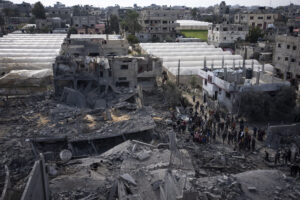
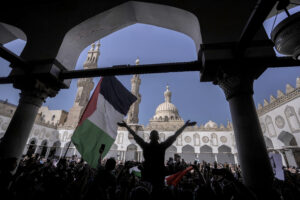
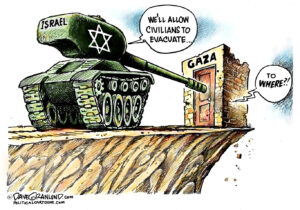
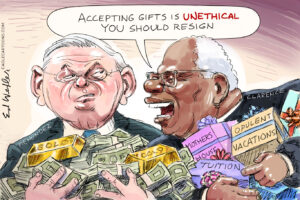
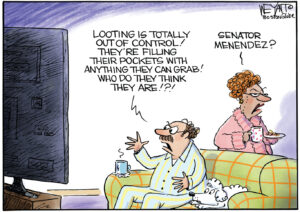
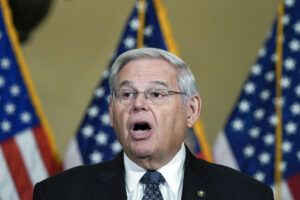
You need to be a supporter to comment.
There are currently no responses to this article.
Be the first to respond.